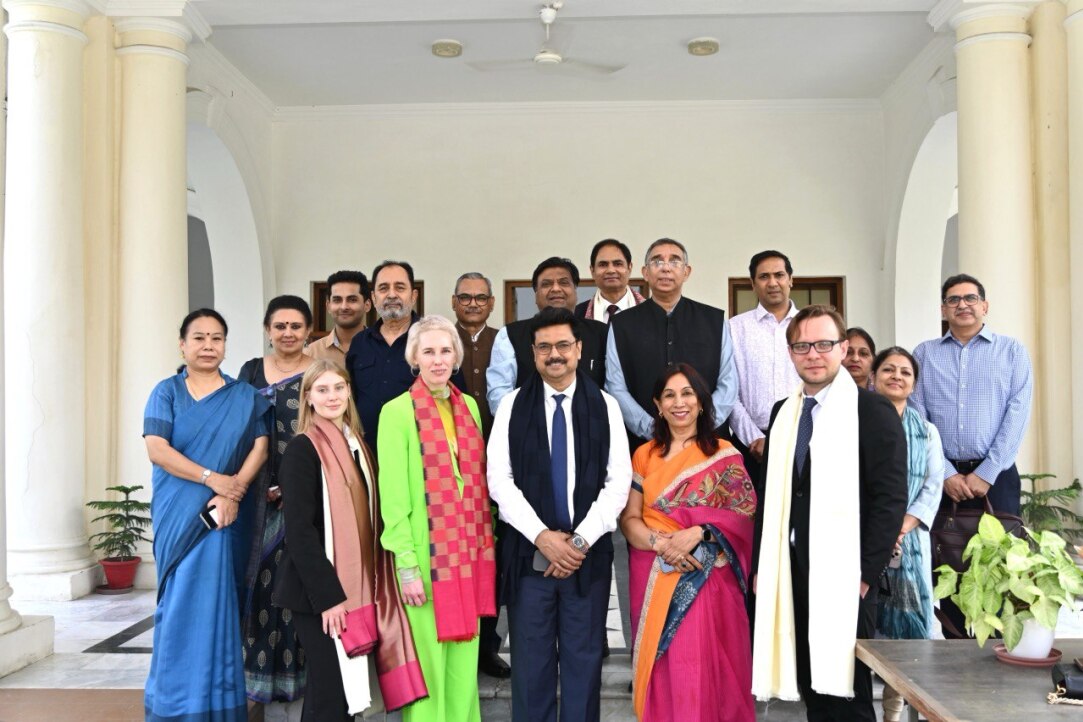
From Mexico to Buenos Aires: HSE University–St Petersburg Enhances Cooperation with Leading Universities in Latin America
New mobility programmes, academic exchanges, and unexpected collaborations—these are the results of the HSE University–St Petersburg delegation's mission to Latin America. Read on to find out about the key agreements made.

IDLab: Fascinating Research, Tough Deadlines, and Academic Drive
The International Laboratory of Intangible-driven Economy (IDLab) was established at the HSE campus in Perm 11 years ago. Its expertise in data processing and analysis allows researchers to combine fundamental studies with applied projects, including the development of risk and cybersecurity models for Sber. The head of the laboratory, Professor Petr Parshakov, and Senior Research Fellow Professor Mariya Molodchik spoke to the HSE News Service about IDLab’s work.
‘Everything I Do at Work Is Connected with What I Studied’
Anna Gonzales, a Peruvian graduate of the School of Innovation and Entrepreneurship at HSE University, completed her Master’s in International Business in 2024. Currently based in Moscow, she works remotely as Marketing Team Lead at Digital Tide, an international IT company. In this interview, Anna reflects on her academic journey at HSE University. From landing her first job as a student to advancing through roles in marketing and technology, Anna shares her insights on cross-cultural collaboration and the lasting value of her HSE education.

HSE Lecturers Awarded Yandex ML Prize 2025
The Yandex ML Prize is awarded to lecturers and heads of educational programmes who contribute to the development of artificial intelligence in Russia. This year, 10 laureates were selected from 300 applicants, including three members of the HSE Faculty of Computer Science (FCS). A special Hall of Fame award was also presented for contributions to the establishment of machine learning as an academic field. One of the recipients was Dmitry Vetrov, Research Professor at the HSE FCS.

HSE Tops Ranking of Universities Participating in Priority 2030 Programme
The Russian Ministry of Science and Higher Education has published an updated list of participants in the Priority 2030 programme. A total of 106 universities will receive support this year. HSE University was included in the first group and topped the ranking.

Linguatest: Over 2,000 People from More Than 30 Countries Have Taken the Test in Just Three Years
On November 17, 2025, Russia’s first universal, multi-level certification testing system for assessing English-language proficiency for business and academic communication—Linguatest SCT—marked its third anniversary. The system was developed and is implemented by HSE University in partnership with the Federal State Budgetary Institution Rosakkredagentstvo and the Prosveshcheniye Publishing House. The test can be taken in person at centres in Moscow or Khabarovsk, or online from anywhere in the world.

'I Have Always Been Fascinated by Deciphering: Reading Texts That No One in the Modern World Had Ever Read Before'
The deciphering of a recently discovered inscription at the Iraqi archaeological site of Tell Dehaila has led to a major breakthrough: the settlement was inhabited during the New Babylonian period, from the eighth to the sixth centuries BC, extending its known lifespan by more than a thousand years compared to earlier estimates. Ilya Arkhipov, Deputy Director and Associate Professor at the Institute for Oriental and Classical Studies of the HSE Faculty of Humanities, spoke to the HSE News Service about the Russian–Iraqi expedition, his passion for antiquity, and the teaching of ancient languages and Oriental history at HSE University.

How to Cope with Autumn Blues and Stress
The rainy season, shorter days, and the return to routine after holidays often pose a challenge to our psychological well-being. But is it possible to transform autumn melancholy and a sense of chaos into a resource for personal growth? IQ Media explored how to approach this period with conscious inner adjustment and learn to cope with anxiety and stress.

‘Keep Working, Keep Publishing—Consistency Matters’
Ziyuan Zhu, from Beijing, China, is an international PhD student at the Institute for Public Administration and Governance at HSE University in Moscow. In this interview with the HSE News Service, Ziyuan talks about how studies can influence one’s outlook on life, comparing public service models in different countries, and why being a Chinese student in Russia is advantageous in research.

HSE University–St Petersburg Signs Three Cooperation Agreements with Leading Indian Universities
A delegation from HSE University–St Petersburg has signed cooperation agreements with key educational institutions in India during a visit to the country. Among the projects are new programmes for academic exchange and mobility.

